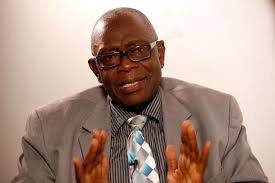Gambia’s “unsustainable” debt poses serious risk—IMF

By Mustapha K Darboe
Gambia risks defaulting on its debt to creditors if its current debt stock further adds up without proper management, International Monetary Fund has warned on Thursday.
“… Gambia’s debt vulnerabilities have risen, with the debt-to-GDP ratio reaching nearly 130 percent of GDP by end‑2017 and total debt service-to-revenue (excluding grants) now projected to average 53 percent over 2018–20,” IMF said in a statement.
“An updated debt sustainability analysis shows that The Gambia’s public debt is now unsustainable, with high external and domestic debt as well as a large pipeline of already-contracted loans that pose risks to solvency.”
The IMF made the observations at the end of the second review of the Staff Monitored Program (SMP) with the Gambia aimed at enabling Gambian authorities to establish a track record for a possible Extended Credit Facility (ECF).
Gambian authorities have so far adopted a multi-pronged strategy to restore and maintain debt sustainability, IMF said.
With a budget deficit of D1.3 billion, Gambia currently spends 47% of its revenue to interest payments.
The finance minister Amadou Sanneh told lawmakers on Wednesday that he has gone to the Paris Club to negotiate waiving and restructuring of Gambia’s debt.
The IMF noted that risks to the Gambia’s outlook stem primarily from legacy issues, including a possible resurgence of political instability, rising public debt and debt service ratios, and lack of control over external debt accumulation, including by state-owned enterprises (SOEs).
“Mitigating these risks will require implementation of the MTEFF and the MTDS, alongside critical SOE reforms to strengthen their governance and enhance their operational efficiency and transparency. The recent completion of the prior action paving the way for the commencement of special audits of key SOEs was a critical milestone in this regard. The authorities are also amending the legal framework of the central bank to strengthen its operational autonomy and to support healthy financial intermediation and inclusion,” IMF said.
“The Gambia embarked on far-reaching economic reforms following its peaceful democratic transition in 2017. The current supportive political environment, ongoing democratic transition and gains in political and economic inclusion have been confidence-enhancing, helping to engender significant international goodwill. As a result, development partners pledged over US$1.5 billion at the recent Brussels conference held in support of The Gambia’s 2018–21 National Development Plan (NDP).”
IMF said the country’s economic recovery is well underway and the outlook is favorable, albeit contingent on continued adherence to the policy reform agenda.


Comments are closed.